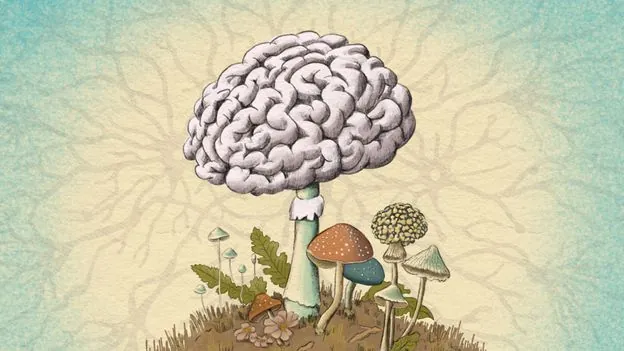
The Hidden Influence of Fungi: Could They Be Affecting Our Minds?
2025-07-20
Author: Wei Ling
An Unseen Kingdom Within Us
Our bodies are home to countless fungi, residing on our skin and within our gut. While some of these microscopic organisms are harmless or even beneficial, others could potentially impact our mental health and wellbeing.
From Birth to Everyday Encounters
We inherit some fungi at birth, but we constantly attract new varieties. Each slice of bread we eat or beer we drink introduces yeasts into our systems, while airborne fungal spores enter with every breath. Although most fungi are swiftly eliminated by our robust immune system, some remain as either transient guests or long-term companions.
Investigating Fungi and Brain Health
Scientists are now exploring whether certain fungi might contribute to serious neurological conditions or even influence our behavior. With historical references to fungal infections resembling the plot of HBO's 'The Last of Us,' the idea isn’t entirely off the wall—but much remains to be uncovered.
The Double-Edged Sword of Fungal Presence
Fungi can play a protective role; for instance, they may bolster our immune system or assist in healing wounds. However, some fungi lead to infections like athlete's foot and thrush, especially when conditions favor their growth. Immunologist Rebecca Drummond notes that infections can arise from harmful fungi either introduced from the environment or when benign fungi proliferate uncontrollably.
Fungal Infections and the Increasing Risk
While it's rare for fungi to invade the brain due to several protective barriers, brain infections can occur. Drummond emphasizes that as more individuals live with compromised immune systems—often due to HIV or medications for cancer and organ transplants—the risk of such infections grows. Some fungi, once in the brain, can cause severe damage, producing toxins that destroy nerve cells.
A New Perspective on Alzheimer’s Disease
Recent studies suggest that certain fungi may infiltrate the brain more frequently than previously thought, potentially playing a role in neurological diseases like Alzheimer’s. Richard Lathe from the University of Edinburgh highlights cases where treating fungal infections led to improvement in dementia symptoms, indicating a deeper connection.
Microbe Impacts on Behavior
Interesting experiments have suggested that certain gut fungi influence behavior. In studies, mice with Candida colonization displayed enhanced social interaction. There is potential that these organisms communicate with our brains, possibly impacting mood and behavior.
Link Between Fungi and Mental Health
The conversation extends to mental disorders. Research indicates differences in gut fungi between those suffering from conditions like depression and schizophrenia. Johns Hopkins neuroscientist Emily Severance found that individuals with schizophrenia might show cognitive deficits linked to Candida exposure, suggesting potential therapeutic opportunities through probiotics.
A Call for Further Research
While researchers are only beginning to understand the role of fungi in brain health, the evidence is compelling enough to warrant closer investigation. As we delve deeper into these tiny organisms, it’s clear that fungi may significantly influence our health and cognitive functions.
The Future of Fungal Research
Drummond asserts the importance of this research as we continue to unravel the complex impact fungi have on human health. With more attention now needed, it appears that our fungal inhabitants are far more integral to our well-being than previously acknowledged.




 Brasil (PT)
Brasil (PT)
 Canada (EN)
Canada (EN)
 Chile (ES)
Chile (ES)
 Česko (CS)
Česko (CS)
 대한민국 (KO)
대한민국 (KO)
 España (ES)
España (ES)
 France (FR)
France (FR)
 Hong Kong (EN)
Hong Kong (EN)
 Italia (IT)
Italia (IT)
 日本 (JA)
日本 (JA)
 Magyarország (HU)
Magyarország (HU)
 Norge (NO)
Norge (NO)
 Polska (PL)
Polska (PL)
 Schweiz (DE)
Schweiz (DE)
 Singapore (EN)
Singapore (EN)
 Sverige (SV)
Sverige (SV)
 Suomi (FI)
Suomi (FI)
 Türkiye (TR)
Türkiye (TR)
 الإمارات العربية المتحدة (AR)
الإمارات العربية المتحدة (AR)